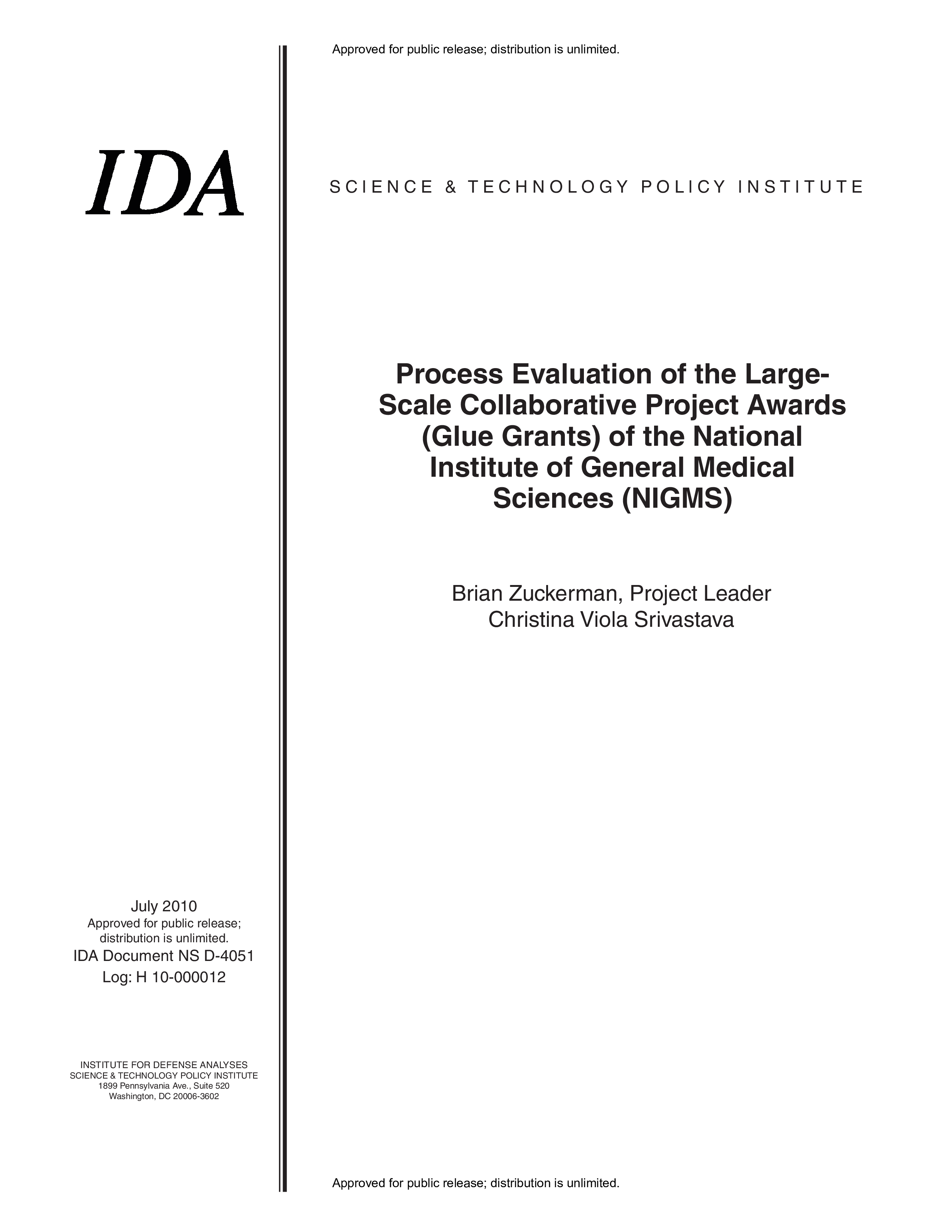The Large-Scale Collaborative Project Awards initiative of the National Institute of General Medical Sciences (NIGMS), commonly known as the Glue Grants program, was launched in 1999. Its purpose was to facilitate collaboration among independently funded investigators to solve complex biomedical research problems through the funding of consortia for a ten-year period. Beginning in 2008, STPI conducted a Process Evaluation of the Glue Grants program. The evaluation focused specifically on three main areas of interest: (1) program planning and design; (2) consortium-level implementation and management; and (3) program-level implementation and management. Key findings included: the program-level objectives of the Glue Grants were not clear; the program design as implemented was not entirely consistent with either of the stated program objectives; in the absence of clear program objectives, the Glue consortia were structured to meet needs and priorities as determined at the consortium level; the Glue Grants functioned as a funding mechanism rather than a cohesive program or initiative; the ten-year timeframe posed a variety of challenges; significant challenges for peer review were encountered because of the size and scope of the Glue Grants; and the Institute's approach to management of the Glue cooperative agreements was not clearly defined

